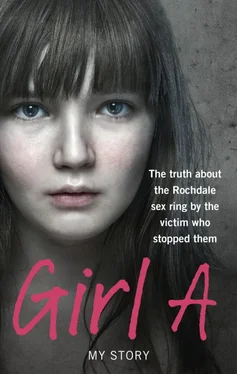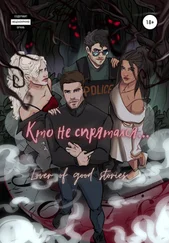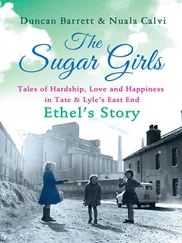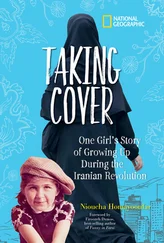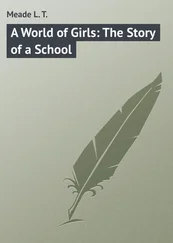Those were the traffickers, but there were others in the dock, all still waiting to be sent down.
Immy, or Kabeer Hassan, twenty-five, received nine years for slipping away from the Balti House counter for his ‘treat’ with me. He got that long a sentence because not only was it rape, but it was also what they call ‘a joint enterprise’ with Ahmed.
Car Zero, or Mohammed Amin, forty-five, loved to drink but had miraculously turned teetotal by the time he got to court. He was given five years for conspiracy and a sexual assault on Leah.
Tiger, or Abdul Qayyum, forty-four, a ‘pillar of the Rochdale Pakistani community’, got the same for his part in the conspiracy.
Oh, and Harry, my white ‘father figure’ abuser? He went on trial a few months later and got four years.
By the time Dad pulled up ten minutes later, my tears had dried and I had a huge smile on my face. Chloe was still eating her Galaxy bar as I strapped her in.
‘Dad,’ I said. ‘He got nineteen years! Daddy got nineteen years!’
Then I was crying again, and Dad started punching the steering wheel like a man demented.
As we headed towards home, he held out his left hand towards me. I gripped it and he squeezed back.
I didn’t need to look up to know he was crying, too.
On the estates I know the teenagers are so broke they’ll save up a fiver over the week from their dinner money, then go out on Friday, buy a bottle of cider and ten fags, and walk the streets with them. They might buy a kebab or chips or whatever and then get a taxi home with their mates.
That’s it. No cinema, no Caffè Neros, no Nando’s afterwards. Just a walk around the streets and a few cigarettes on a park bench. Then another week of poverty to get through.
If there’s a breakdown in white communities, it’s on estates like mine – and the hundreds and hundreds of others just like it up and down the country – where most people are on benefits and parents don’t have any spare money to give their kids.
My dad says now that Daddy and his kind are predators, hunters, and if you’re hunting for lion you’ll go to Africa, where you know they are. And so these people don’t go hunting in Cheltenham or Guildford or Bath. They go hunting on council estates and all the rough areas, where kids are poor. Society’s changed, and it’s made their hunting ground wider. Poverty doesn’t help, nor the recession, and with the youth clubs either closed or closing, these people are giving young girls some of the things they don’t get otherwise: food, ‘friendship’, gifts.
They’ve watched girls like me coming out of school in the daytime or walking the streets with alcohol in our Lucozade bottles at night, getting drunk, using the local taxis, going into the kebab shops. And they’ve seen that we’re vulnerable. We just happen to be white, or mostly.
They’ll talk to us at first and they’ll sound like fun. We’ll act like idiots and have a laugh and they’ll laugh with us, or so we’ll think. Then it’s, ‘Have some more of this, have some more of that.’ At the time you think it’s you taking advantage of them, but it’s not. That’s how they do it. That’s how they get you. That’s how they hunt you down.
After the trial, all hell broke loose, pretty much. Some people saw it as a group of white girls being used and abused by a gang – maybe two gangs – of mostly middle-aged Pakistani men. And they could see that, despite some people trying to sweep it under any carpet they could find, it had been going on for years.
Others couldn’t, or wouldn’t, see it. They could only see the sort of political correctness that said, ‘No, that can’t be happening. It would be awful, wouldn’t it? And how could we explain it? And wouldn’t it all be ammunition for the far-right?’
It was the kind of thinking that had left me, and the generations before me, to the ‘lifestyle decisions’ we’d supposedly made. In doing that they’d condemned us.
Rochdale Council claimed not to have known, or at least not to have understood, what was going on. They’ve been on a ‘journey’, they said, as if they’d signed up for some kind of fancy self-awareness course and everyone was supposed to say, ‘Well done, that’s nice. We hope you’ve learned a few things.’
But they did know, or they should have done.
I was still safely by the sea, with my bike and my Barbie dolls, at the time Shannon started to be abused in 2002.
She had walked along some of the same streets that I’d come to know, and been driven along them as well, just like me, terrified, sometimes drunk, sometimes drugged by men who were just the same as Daddy, Tariq and the rest of my abusers.
It was all documented, sitting in files that had done nothing more than gather dust by the time I came onto the scene six years later – the latest girl to find herself on the conveyor belt of grooming and abuse.
When things eventually got tough for both the police and Social Services, they’d claim that grooming like this wasn’t fully understood then. They knew about it, of course, but just dismissed it as girls like me going off the rails and making what became their new buzz word: ‘lifestyle choices’. No, they said, they didn’t understand it. Even though they had files full of evidence that told them exactly what sort of behaviour was going on in their town and how they could have moved in to stop it, and rescue at least some of the girls like me.
Shannon had lived in Rochdale and was regularly picked up by taxis on streets within sight of the town hall. So were other girls she knew. They were all the same sorts of ages: thirteen, fourteen, fifteen. All of them vulnerable; all chaotic and somehow going off the rails. Just like me, a few years down the line, they would end up some nights in sordid flats and houses where the men, almost all of them Asian, would use them for easy sex.
The police call it a modus operandi – an established way of doing something – and it was always exactly the same. It hadn’t changed over the years, not even down to the vodka they’d use to get us all drunk. It was just that in 2008 we were the new intake; we just had different names.
Crisis Intervention knew about it, and they’d been telling both the police and Rochdale Social Services for years.
They all knew that in August 2005 Shannon had been kidnapped, raped and left on the moors above her home town. Police did investigate, and they got as far as arresting two men, both of them Asian. But it never came to court because she withdrew her complaint.
It’s no wonder Jane and her boss, Sara, were frustrated and, no doubt, angry. Two and a half years before Daddy started raping me, Crisis Intervention had sent out another letter, another referral, marked ‘To Whom It May Concern’.
In it, Sara had written:
‘On 15th Feb ’06 Shannon presented to the Crisis team office at 8.30 a.m. in a distressed state stating that she had been taken to a hotel the previous evening by a nineteen-year-old man and his friends.
‘She had been given a substantial amount of alcohol and couldn’t remember who or how many people had had sex with her.
‘Shannon had lovebites on her neck and back, was dressed in a sari and was complaining of lower abdominal pain. Her outfit was soiled, she smelt and was very hungry. She said she had left the hotel in the early hours and walked back to Rochdale.’
In the same letter – copies of which went to both Greater Manchester Police and Rochdale Social Services – she said:
‘I believe from discussion and on-going involvement with Shannon that she is being sexually exploited by a significant number of adult men.
‘I also believe that much of Shannon’s sexual activity is non-consenting and done under duress and threat of violence. I also believe that Shannon is being given substantial amounts of drugs and alcohol in order to further impair her judgement.’
Читать дальше
